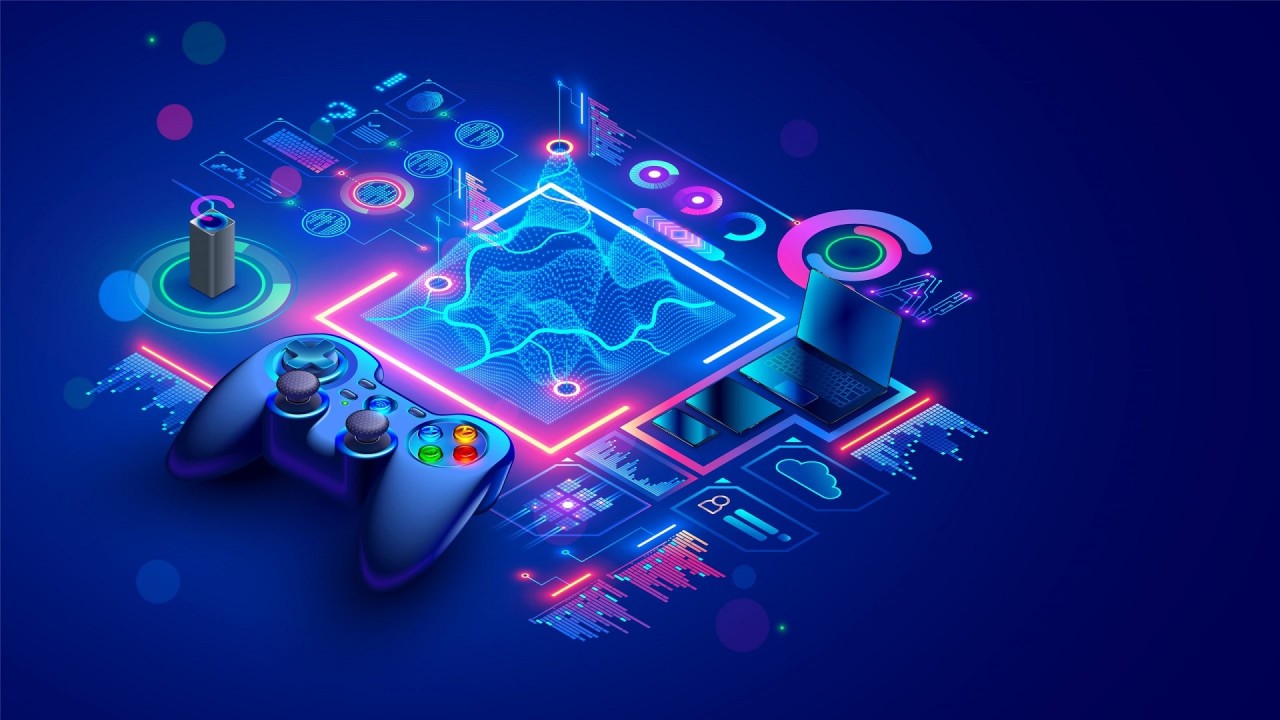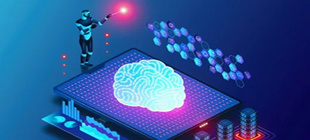Welcome to AMIEE Association
Latest News

11
July
How AI is revolutionising game design and player experiences
Artificial intelligence (AI) is transforming numerous industries, and the gaming industry is no exception. From developing sophisticated game mechanics to enhancing player experiences, AI’s influence is increasingly pervasive. This article explores how AI is revolutionizing game design and player experiences at a rapid pace.
The Role of AI in Game Design
- Procedural Content Generation
One of the most significant impacts of AI in game design is procedural content generation (PCG). PCG allows developers to create vast, dynamic game worlds and experiences that can adapt and evolve in real-time. Instead of manually designing every aspect of a game, developers can use algorithms to generate content such as levels, landscapes, and even entire narratives. This approach ensures that each player’s experience is unique and fresh, contributing to greater engagement and replayability.
- Enhanced Non-Player Characters (NPCs)
AI is also crucial in developing more realistic and intelligent NPCs. Traditionally, NPCs followed predetermined scripts, making their actions predictable and sometimes frustrating for players. However, with AI, NPCs can now learn and adapt based on player behavior, creating more engaging and immersive interactions. These AI-driven NPCs offer a more personalized and dynamic gaming experience, making the virtual world feel more alive and responsive to player actions.
- Enhanced Non-Player Characters (NPCs)
Balancing the difficulty of a game is a challenging task for developers. Too easy, and players lose interest; too hard, and they may become frustrated. AI can help by analyzing player behavior and adjusting the difficulty level in real-time. This dynamic difficulty adjustment ensures that players remain engaged and challenged without feeling overwhelmed, maintaining an optimal balance that caters to different skill levels and preferences.
AI in Enhancing Player Experiences
- Personalized Gaming Experiences
AI’s ability to analyze vast amounts of data allows for highly personalized gaming experiences. By tracking player preferences, behavior, and performance, AI can tailor content and recommendations to individual players. This personalization can range from suggesting in-game items and quests to adjusting the game’s storyline based on player choices. Such tailored experiences make players feel more connected to the game, enhancing their overall enjoyment and satisfaction.
- Real-Time Analytics and Feedback
AI enables real-time analytics and feedback, allowing developers to understand player behavior and preferences better. This data can be used to improve game design, fix bugs, and introduce new features. Players benefit from a continuously evolving game that meets their expectations and desires. Real-time analytics also help developers create more engaging and balanced gameplay, addressing issues and opportunities as they arise.
- The Impact of AI on Online Slot Gaming
One of the most intriguing applications of AI in gaming is in online casinos. Innovative bitcoin pokies, or slot machines, leverage AI to offer a more engaging and secure gambling experience, particularly through the use of bitcoin payments on the casino platform. AI can lead to better security and more interesting gameplay features. For example, some games may incorporate elements of skill or strategy, where AI opponents can provide a challenging and dynamic gaming experience.
Moreover, AI-driven pokies can analyze player behavior to create personalized gaming experiences, ensuring that each slot gaming session is unique and tailored to the player’s preferences. Additionally, the use of AI in bitcoin pokies can enhance security by detecting and preventing fraudulent activities. AI algorithms can identify unusual patterns and flag potential threats, ensuring a safer environment for players. This is particularly important in the cryptocurrency space, where anonymity can sometimes be exploited for illicit purposes.
- AI-Powered Customer Support
AI is also revolutionizing customer support in online casinos. AI-driven chatbots and virtual assistants provide instant support to players, addressing their queries and issues in real-time. These AI-powered systems can handle a wide range of tasks, from account management to troubleshooting technical problems, thereby enhancing the overall player experience.
- Enhanced Game Fairness and Transparency
airness and transparency are crucial in online gambling. AI helps ensure that games are fair by analyzing and monitoring gameplay to detect any anomalies or unfair practices. This transparency builds trust between players and online casinos, fostering a more positive and secure gaming environment. AI algorithms can audit and verify the randomness of outcomes in bitcoin pokies, assuring players that the games are not rigged and that they have a fair chance of winning.
Future Prospects of AI in Gaming
- Upcoming Technology
AI is set to play a significant role in the development of VR and AR games. By creating more immersive and responsive virtual environments, AI can enhance the realism and interactivity of VR and AR experiences. This advancement will open up new possibilities for game design and player engagement.
- AI-Driven Storytelling
The future of game storytelling lies in AI-driven narratives. AI can analyze player choices and adapt the storyline accordingly, creating dynamic and personalized narratives. This approach ensures that each player’s journey is unique, enhancing replayability and engagement.
- Advanced Player Analytics
As AI technology continues to evolve, the ability to analyze player data will become even more sophisticated. This advancement will enable developers to create more precise and personalized gaming experiences, further blurring the line between the virtual and real worlds.
AI is undoubtedly revolutionizing game design and player experiences. From intelligent NPCs to personalized gaming and enhanced online experiences, the impact of AI is profound and far-reaching. In the future, we can expect even more innovative and immersive gaming experiences.




Leave A Reply